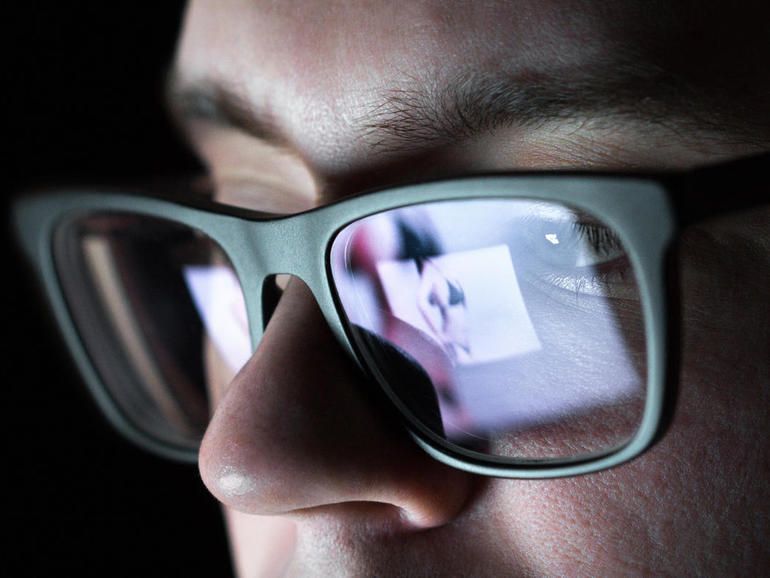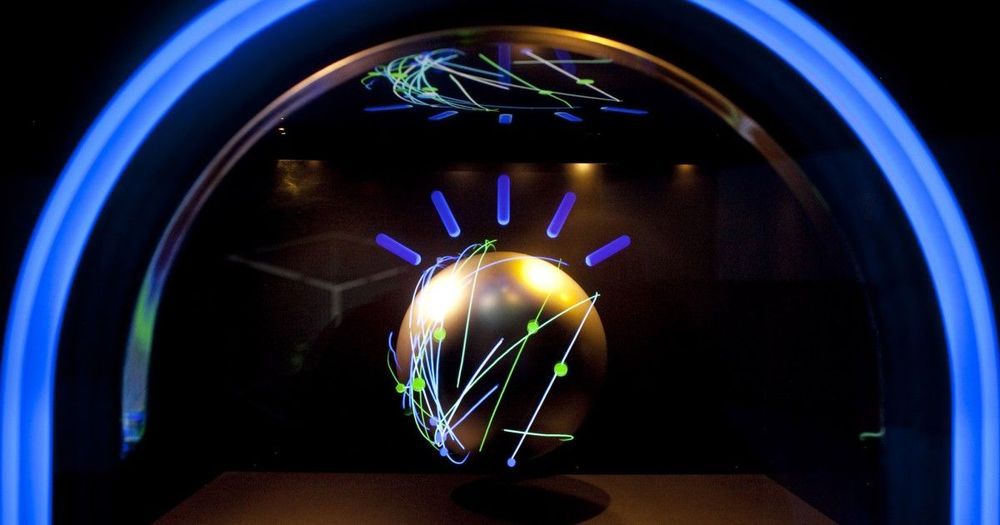Extremists could generate ‘synthetic propaganda’, automatically creating white supremacist screeds, researchers warn.




“Cogito, ergo sum,” Rene Descartes. Translation: “I think, therefore I am.”
What makes us, us? How is it that we’re able to look at a tree and see beauty, hear a song and feel moved, or take comfort in the smell of rain or the taste of coffee? How do we know we still exist when we close our eyes and lie in silence? To date, science doesn’t have an answer to those questions.
In fact, it doesn’t even have a unified theory. And that’s because we can’t simulate consciousness. All we can do is try to reverse-engineer it by studying living beings. Artificial intelligence, coupled with quantum computing, could solve this problem and provide the breakthrough insight scientists need to unravel the mysteries of consciousness. But first we need to take the solution seriously.
You can now pay with your smile because credit cards are so 2016.

In the late ’90s, wildlife conservationists Zoe Jewell and Sky Alibhai were grappling with a troubling realization. The pair had been studying black rhino populations in Zimbabwe, and they spent a good deal of their time shooting the animals with tranquilizer darts and affixing radio collars around their necks. But after years of work, the researchers realized there was a major problem: Their technique, commonly used by all manner of wildlife scientists, seemed to be causing female rhinos to have fewer offspring.
The researchers published their findings in 2001, igniting a controversy in the conservation world. The problem, says Duke University professor of conservation ecology Stuart Pimm, is that being “collared” is extremely stressful for animals. “If you were walking through your neighborhood and suddenly a bunch of strange people came charging after you … and you got shot in the ass with a dart and woke up with something around your neck, I think you’d be in pretty bad shape too,” he says.
But Jewell and Alibhai had an idea. While working alongside the Shona tribe in Zimbabwe, they saw how the indigenous trackers were able to deduce an enormous amount of information about wildlife from animals’ footprints, including weight, sex, and species, all without getting anywhere close to the animals themselves. “We would go out with local game scouts, who were often expert trackers, and they would often laugh at us as we were listening to these signals coming from the collars,” Jewell says. “They would say to us, ‘all you need to do is look on the ground.”


Learning something new — and quickly — may depend on the lesson’s difficulty level, according to a new study.
Flipping the classroom, room temperature, and later school-day start times, are just a few of the countless interventions scientists have tested and some educators have implemented.
Now, scientists say they have cracked the code on the optimal level of difficulty to speed up learning. The team tested how the difficulty of training impacts the rate of learning in a broad class of learning algorithms, artificial neural networks, and computer models thought to simulate learning in humans and animals.

Too large to be classed as molecules, but too small to be bulk solids, atomic clusters can range in size from a few dozen to several hundred atoms. The structures can be used for a diverse range of applications, which requires a detailed knowledge of their shapes. These are easy to describe using mathematics in some cases; while in others, their morphologies are far more irregular. However, current models typically ignore this level of detail; often defining clusters as simple ball-shaped structures.
In research published in The European Physical Journal B, José M. Cabrera-Trujillo and colleagues at the Autonomous University of San Luis Potosí in Mexico propose a new method of identifying the morphologies of atomic clusters. They have now confirmed that the distinctive geometric shapes of some clusters, as well as the irregularity of amorphous structures, can be fully identified mathematically.
The insights gathered by Cabrera-Trujillo’s team could make it easier for researchers to engineer atomic clusters for specific applications. These could include nanoparticles containing two different metals, which are highly effective in catalysing chemical reactions. Their updated methods provided new ways to determine the structural properties of clusters, the ways in which they convert energy to different forms, and the potential forces between atoms. The technique was also able to distinguish the surrounding environments of atoms in the cores of clusters, and on their surfaces. Ultimately, this allowed the researchers to distinguish between distinctive shapes, including icosahedrons, octahedrons, and simple pancakes. They were also able to identify amorphous shapes, which contain no discernible mathematical order.

Microsoft and Warner Bros. have collaborated to successfully store and retrieve the entire 1978 iconic “Superman” movie on a piece of glass roughly the size of a drink coaster, 75 by 75 by 2 millimeters thick.
It was the first proof of concept test for Project Silica, a Microsoft Research project that uses recent discoveries in ultrafast laser optics and artificial intelligence to store data in quartz glass. A laser encodes data in glass by creating layers of three-dimensional nanoscale gratings and deformations at various depths and angles. Machine learning algorithms read the data back by decoding images and patterns that are created as polarized light shines through the glass.
The hard silica glass can withstand being boiled in hot water, baked in an oven, microwaved, flooded, scoured, demagnetized and other environmental threats that can destroy priceless historic archives or cultural treasures if things go wrong.

But the very features of AI that have allowed it to be so successful in other arenas also make it dangerous when applied to the financial world. These threats mirror the problems that created the last financial crisis — when complex derivatives and poorly understood subprime mortgages sent the world into a deep depression — and must be taken seriously.
As AI gains a foothold on Wall Street it could fundamentally change the way our financial system works. It could also cause financial chaos.